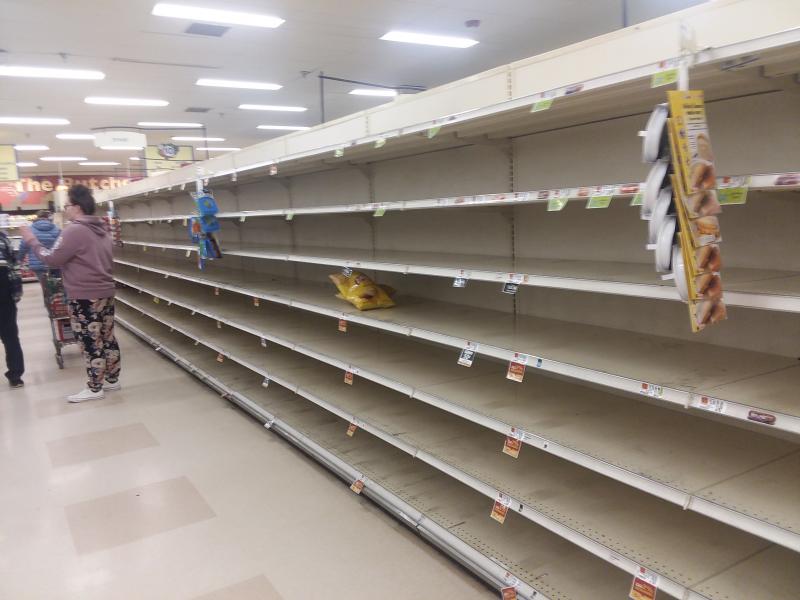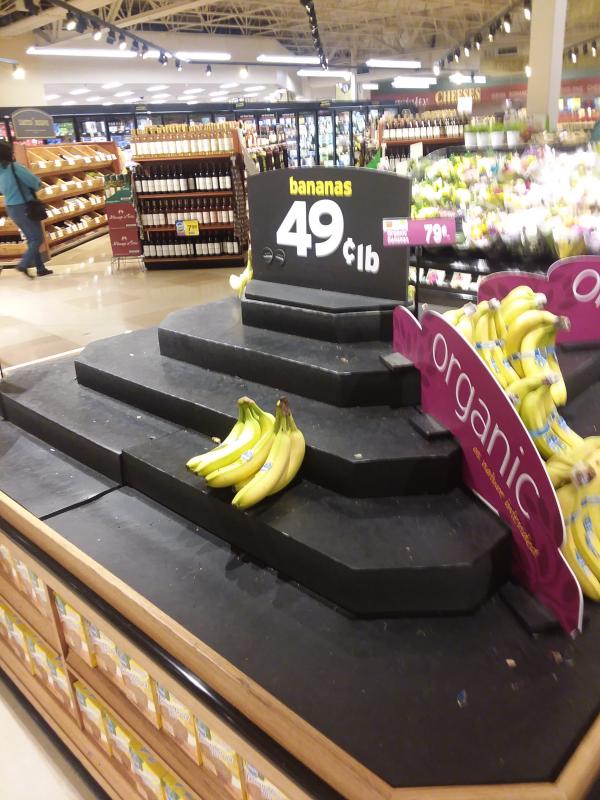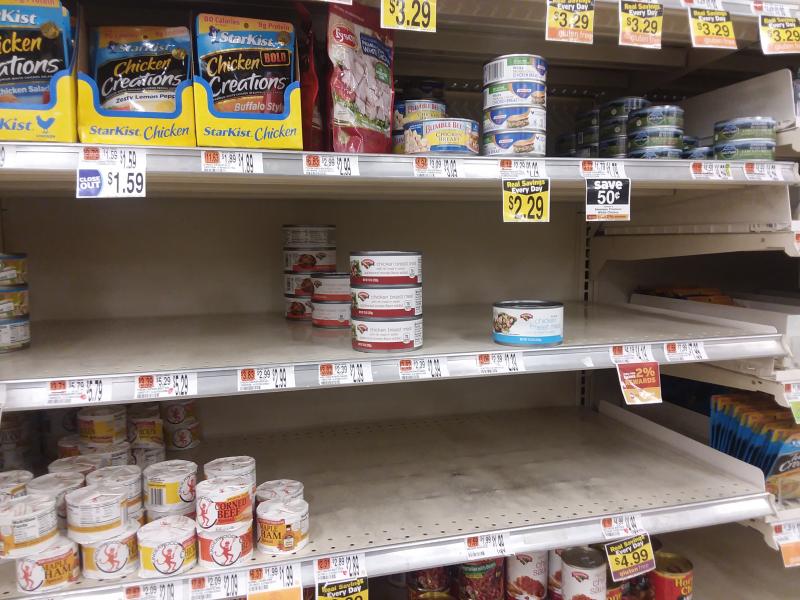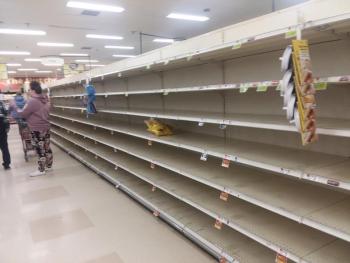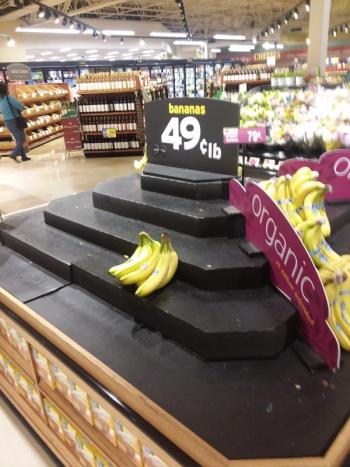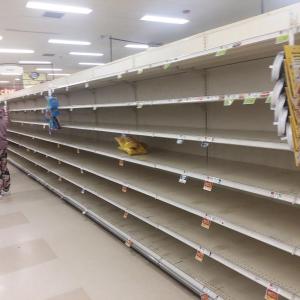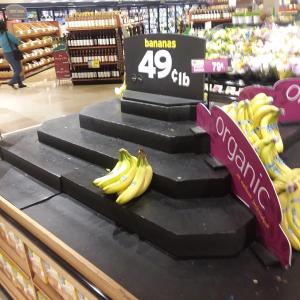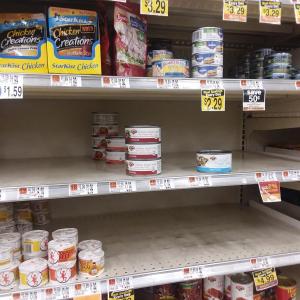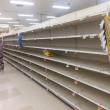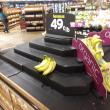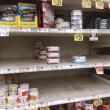Alternatives to panic shopping/hoarding while we get though this
Did you feel anxious all weekend? Sort of like that frog in the fable who sits in tepid water that’s slowly being brought to a boil?
On Friday afternoon, during a downpour, I headed to Hannaford Supermarket in Belfast for my usual weekend shop, knowing that they would be out of toilet paper, out of hand sanitizer, etc. All last week, my Facebook feed showed posts of local grocery stores with empty shelves where the toilet paper and paper towels used to be; I was prepared for that.
On my way to the store, I stopped first at another local shop where a customer was having a conversation with the clerk that went something like this:
Clerk: I was in Walmart yesterday and there was one pack of toilet paper left on the shelf. And we’re out! I have a young kid, so I took it, but then this woman started screaming at me, calling me selfish. I mean, was that hoarding?
Customer: That’s not hoarding! It’s one pack. And you needed it.
Clerk: I had to literally hide the toilet paper in my reusable bag so that other people wouldn’t yell at me as I hit the self- check out. It was awful.
The parking lot at Hannaford’s in Belfast was packed; no surprise. But, when I started to roam the aisles, a feeling of dread began to creep in. The canned goods shelves were nearly gone; the meat in the refrigerated cases, gone. The bread aisle, rapidly emptying. This was more than just toilet paper hoarding. Essentials were now being depleted at an alarming rate.
I knew that so many families couldn’t get to the store until Saturday or Sunday, and they would be shocked to see how little was left once they did. As a shopper, I got into a casual conversation with an employee of Hannaford, a young man in his 20s (I didn’t identify that I was a reporter, nor will I use the person’s name) who told me that he had a four-month-old child at home and couldn’t even get baby wipes or the essentials he needed because lines of people had formed at 7 a.m. that morning and the masses had cleaned out the aisles before anyone else could get there.
Taking a quote from Humans of New York
“I think this will be our generation’s World War. ... As with all wars, each of us will be remembered by our behavior during this time. What instinct did we embrace? The instinct of self-preservation? Or the instinct of compassion? During our World War--- did you make things better? Or did you make things worse?
Did you lash out? Or did you comfort?
If you have extra—did you share?
If someone relies on you for income— did you pay them?
If your neighbor lives alone— did you help them prepare?
If you wonder how somebody is making it—did you ask?
As of Sunday, when I returned to the store for one item, new restrictions had been put in place. Hannaford and Shaw’s have both posted COVID-19 statements that high-demand items, such as toilet paper will now have a buying limit.
There is a difference between disaster preparedness and panic buying. Many people know what supplies they need to get through a two-day blizzard. But no one knows how long COVID-19 will last. According to an article in Forbes on consumer motivations, panic buying is fueled by anxiety, exacerbated by a fear of the unknown, and buying more than one needs, e.g. hoarding, is “...a way to assert some control over the situation by taking action.”
As a Maine community (and I consider the entire 16 counties one big community), we are known for our ability to hunker down and get through crises, whether it’s a two-day ice storm or long-term power outages.
With COVID-19 restrictions, closings, and cancellations popping up by the hour all weekend, it was completely understandable that the stories coming out of the media and social media posts are contributing to this increased sense of scarcity and anxiety. (And this is precisely why I resisted writing about this subject until it became impossible not to.)
But let’s make sure this coming weekend and the weeks after, that this feeling of anxiety and scarcity doesn’t devolve into a base response, along with hoarding and the more sinister chain reaction of in-store brawling and guns drawn that occurred around the U.S. this past weekend.
It’s not the coronavirus I’m afraid of: it’s the worst that can come out in humanity. The selfishness; the “me-first-get-out-of-my-way” mentality; the irrational stockpiling that creates shortages for vulnerable populations, such as the elderly and people with children. Food shortages lead to riots all over the world. Don’t think it can’t happen here.
Here are some alternatives to panic buying and suggestions on how to support one another in our communities while we all get through this:
- Stagger out your shopping during the week; buy only one or two high-demand items at a time. Grocery stores are making every effort to re-stock as fast as possible.
- Consider ordering supplies online through Amazon, Walmart, Target and buy groceries online through Shaws or Hannaford Supermarket
- Got extra supplies? Offer it to your friends and neighbors who are in desperate need. I have one friend who posted on Facebook that she had extra toilet paper to give away. Another person mentioned she’d be giving free toilet paper to anyone who needed it through Midcoast Message Board. Right now, food pantries are in dire need of basic necessities that have been depleted, so consider donating extra food or supplies you can spare. This is the kind of community compassion and generosity Mainers are renowned for and helps to ease the anxiety of scarcity.
- Join Midcoast Collective Care on Facebook, a public group which aims to provide resources for communities, including an anonymous Coronavirus Community Assistance Form
How to support others in the community while getting your own needs met:
- Buy gift certificates to your local restaurants, cafes and bars and use them later. While people continue to self-isolate, restaurant owners and servers are facing a catastrophic drop in customers; meanwhile, over the weekend, rumbles of bars and restaurants closing in the U.S. might become a possibility in Maine. Support them where you can, buy take-out, and tip well.
- Support local farm, seafood CSAs as well as farmer’s markets. This is a secondary hit from fall-off in the restaurant business, as a recent PenBay Pilot story attests, especially when restaurants are forced to buy less from farmers. Update: A new farm product and pick up directory has been created.
- Eat more lobster! Maine’s lobstering communities are hit hard by Coronavirus as lobster prices tumble due to the worldwide slowdown in imports. Buying locally from seafood purveyors helps keep food on their tables too. This special Facebook group page connects you directly to lobstermen looking to sell their products.
That’s all I got people. This is going to get worse before it gets better. But we will get through this by being mindful of how our anxieties drive our behavior and being thoughtful and generous.
Event Date
Address
United States

